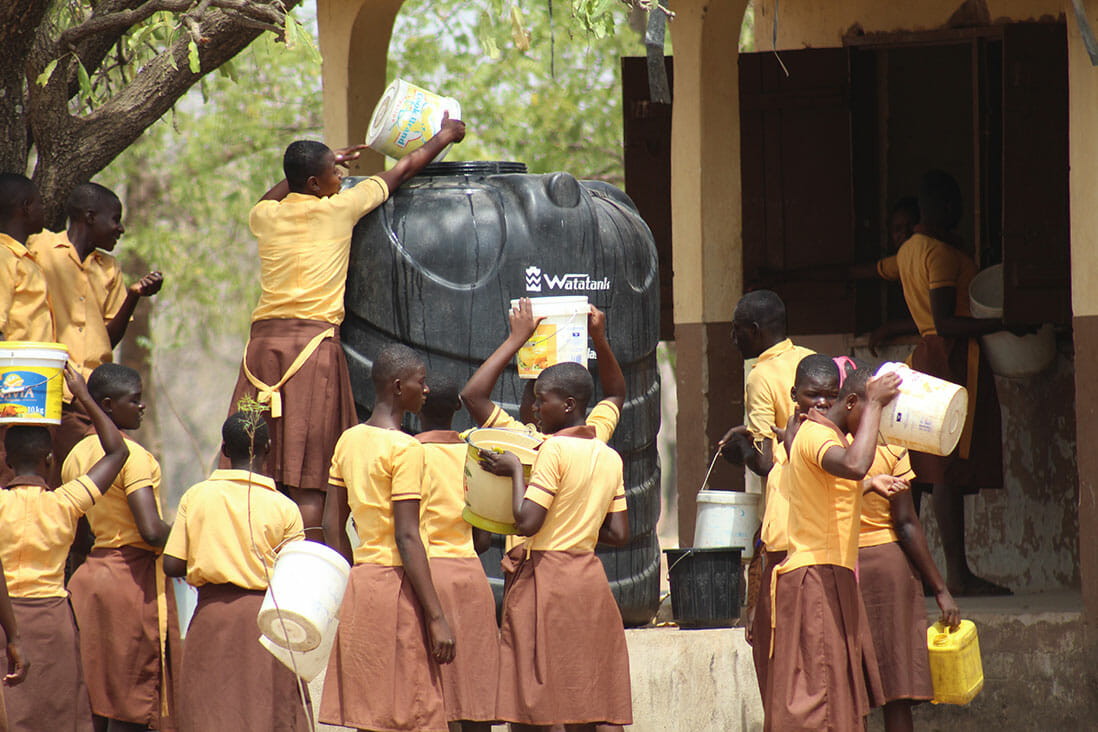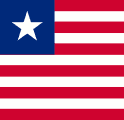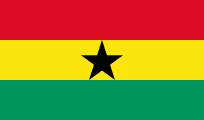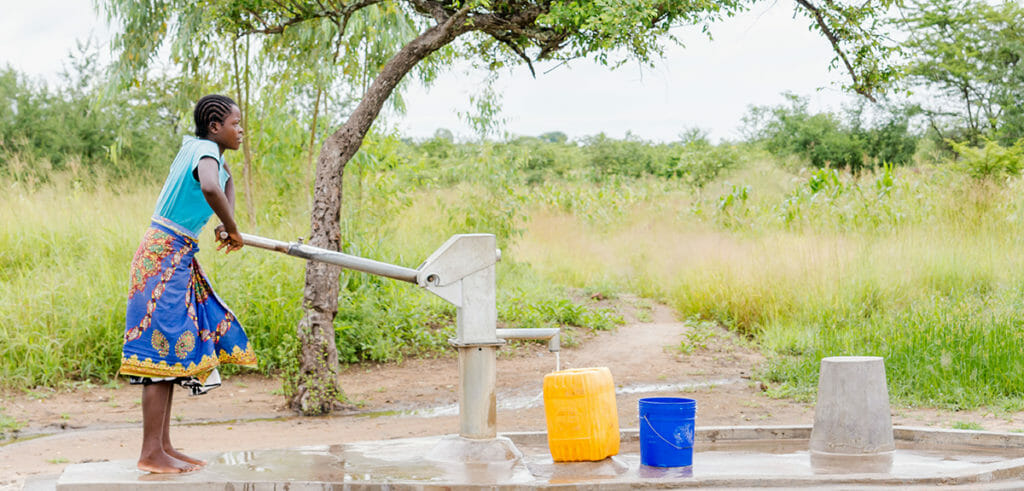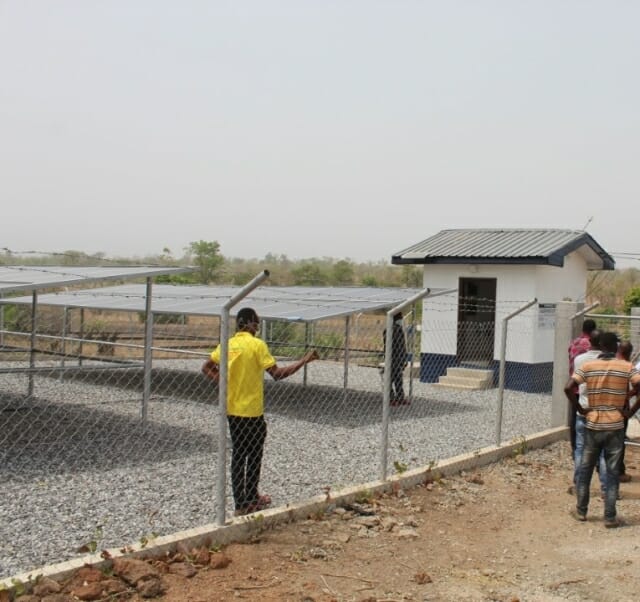Hundreds of millions of people globally do not have access to sustainable safe drinking water and sanitation services. According to the World Health Organization/UNICEF Global Joint Monitoring Program, as of 2020, about 25 percent of the world’s population was without safely managed drinking water, and about 46 percent without access to a safely managed sanitation service.
Access to clean water and safe sanitation is a matter of life and death for hundreds of thousands of young children each year, who face diarrheal diseases as well as long-term health consequences like stunting and undernutrition that are directly linked to open defecation. In addition, the health effects of the global COVID-19 pandemic have been further magnified for the millions of families who lack basic handwashing facilities, soap or water at home.
Global Communities is committed to advancing the goal of universal access to clean water and sanitation. Our work includes helping build strong local systems that link communities and households to sustainable water, sanitation and hygiene (WASH) services.
Expanding Access to Clean Water Worldwide
Global Communities works closely with local governments and communities to address the full life cycle of costs and risks associated with water and sanitation investments and water quality monitoring. Strong local partnerships ensure the long-term sustainability of solutions that are equitable, environmentally sound and well-suited to the specific needs of each community. Learn more about Global Communities’ commitment to sustainable water services and water security.
Improving Key Sanitation & Hygiene Behaviors
Global Communities draws on decades of experience in rural sanitation to implement Community-Led Total Sanitation programs that result in open defecation-free communities and safer, more reliable water supplies. Our evidence-based programs are constantly adapted based on real-time learning and scaled based on proven success. Global Communities is an innovator in community-based WASH finance, professionally managed water service provision, behavior change, asset management and water resource management, advances that are necessary to institutionalize long-term planning, budgeting and oversight in the local context.
In urban and peri-urban areas and small towns, vulnerable residents often cannot connect to piped water supply networks or to sewers. To address this challenge, Global Communities is building on the emerging evidence base for City-Wide Inclusive Sanitation models that strengthen public sector capacity to partner with the private sector and conduct standards-based oversight for safely managed sanitation and water supply services to all. We are also working to scale up appropriate off-grid, revenue-generating solutions to increase the supply of safe water and safely managed sanitation in urban areas through partnerships with market-oriented WASH service providers.
Global Communities utilizes strong, collaborative relationships with communities to encourage positive, healthy sanitation and hygiene behaviors such as hand-washing, treatment and storage of water, food safety and the use and maintenance of latrines. Throughout our programs, we use a behavior-led approach to raise awareness on the importance of key hygiene behaviors, work with communities to understand the barriers to effective practice of these behaviors and empower families and communities to address these barriers in a locally appropriate, sustainable way. In addition to behavior change, we work with communities to identify, procure, and install locally available and sustainable infrastructure. As one example, the WASH for Health program in Ghana, supported by the U.S. Agency for International Development (USAID) and implemented by Global Communities and the Manoff Group, used a behavior-led systems approach to deliver powerful results. In just 17 months, households with children under five years old increased the safe storage and proper retrieval of drinking water 13% and 39%, respectively, maintained improved household latrines, and saw hand-washing with soap under running water increase by more than 40%.
Promoting Sanitation & Hygiene in Schools & Health Care Facilities
Bringing appropriate WASH services to scale in schools and at health care facilities requires commitment and coordination across sectors, as well as planning and action by local governments, WASH authorities, and community champions. Global Communities leads with intensive, equity-focused advocacy backed by data on education and health outcomes to mobilize action and funding from the public and private sectors. In Tanzania, we work with district engineers and education leaders to determine regional priorities for safe water systems at primary schools including latrines, handwashing stations, wells, boreholes, and rainwater harvesting tanks.
Supporting Adolescent Girls at School
Women and girls, especially those who belong to marginalized populations, face disproportionate challenges in the WASH sector. The burden of collecting water for drinking, cooking, cleaning and bathing limits their opportunities for education, income generation, and community participation. Traveling long distances to collect water or use toilets and practicing open defecation exposes women and girls to harassment and violence.
These challenges are exacerbated by the necessity to manage menstrual hygiene in unsafe, undignified, and unsanitary spaces, which is particularly detrimental for adolescent girls, as it affects not only their sexual and reproductive health but also their psychosocial development, school attendance, and educational attainment.
A lack of access to safe WASH also has negative impacts on health outcomes for pregnant women, lactating mothers and newborn babies. Too often, women and girls are excluded from meaningful participation in the design, management and oversight of WASH systems and facilities, resulting in less effective and less equitable decision-making.
To address these challenges, Global Communities implements women-centered and gender-responsive approaches to reduce barriers to WASH and facilitate women’s and girls’ leadership and participation in WASH processes. In our WASH interventions, Global Communities applies a gender lens throughout each program cycle, not only to ensure that WASH services and products meet women’s and girls’ unique needs for safety, privacy, and affordability, but also to accelerate progress toward gender equality more broadly by challenging discriminatory gender norms and power dynamics.
As a part of the WASH for Health program in Ghana, Global Communities partnered with Be Girl, a mission-driven, U.S.-based social enterprise that creates innovative, reusable menstrual protection products and age-appropriate menstrual education methodologies. Together, we implemented a six-month pilot project that reached 1,142 girls and 276 boys. As a result of this intervention, girls reporting difficulty in attending schools was reduced from 47% to 10% and 92% of girls reported positive feelings about menstruation, while 88% of boys reported feeling more comfortable around girls during their period.
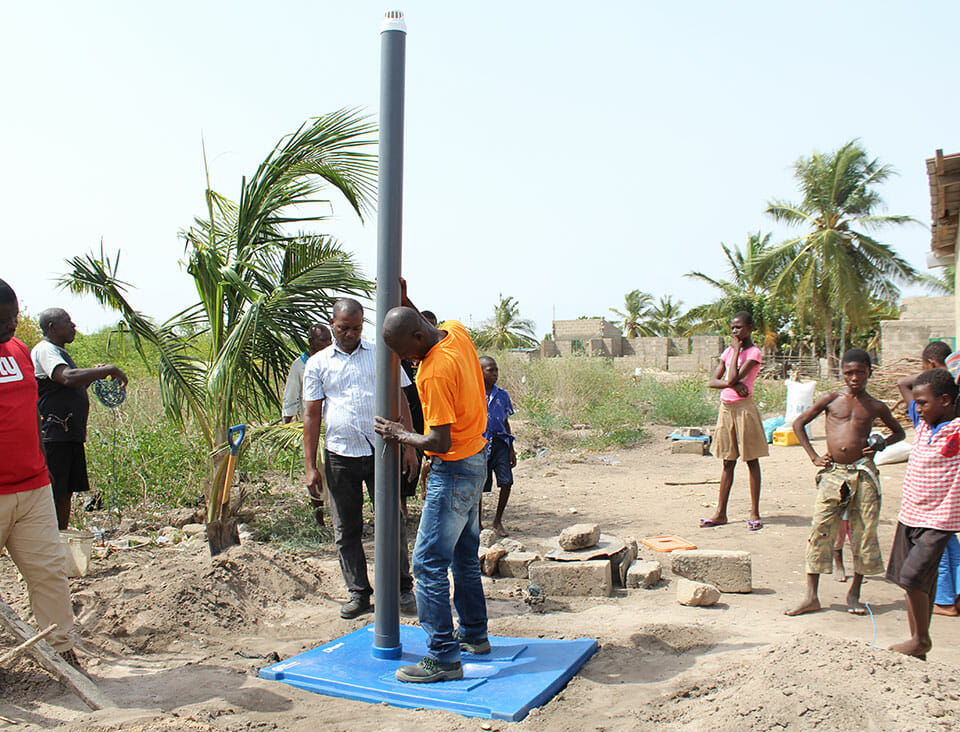
Digni-Loo: Creating a Poor-Inclusive Market for Rural Sanitation Products and Services in Ghana
As part of USAID’s WASH for Health project, Global Communities worked with the plastics company Duraplast Ghana and the Government of Ghana to enable the creation of a poor-inclusive market for rural sanitation products and services. Using a human-centered design process focused on rural households, Global Communities helped develop a low-cost, affordable, and long-lasting hygienic sanitation product, the Digni-Loo.
The Government of Ghana’s national guidelines for reaching the poor and vulnerable with basic sanitation services, created with technical assistance from WASH for Health, identified the critical role of both the public and private sector in making rural sanitation facilities affordable to the poor, accountable to the consumer and effective at stopping open defecation. To meet this challenge, Global Communities worked to enable and engage the rural sanitation market. This included building links between rural communities and Duraplast, working with the government to ensure oversight of the private sector, and collaborating directly with Duraplast to reduce market risks, connect with consumers and develop Digni-Loo latrines as a viable, sustainable business line.
In a new model of public-private cooperation to scale up basic sanitation, the Government of Ghana purchased 20,000 Digni-Loo units for delivery to poor rural households.
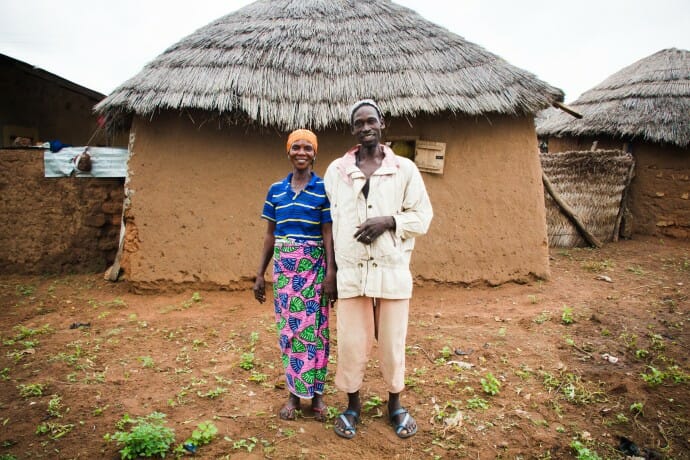
Food Security & Agriculture
With the support of the Bill and Melinda Gates Foundation, Global Communities worked to bridge governance and finance gaps in WASH services in poor urban communities of Ghana through the IncluCity project. IncluCity tested the theory that increasing urban slum residents’ participation in governance structures would lead to an increase in municipal revenue generation to fund vital services. Citizen participation in development planning was a policy requirement when the project began, but city managers had no effective system for gathering input from poor communities.
IncluCity introduced a “push” model to deliver citizen perspectives to planners. The results demonstrated that residents placed a high priority on water supply, storage and public sanitation facilities, but budgeting for improved WASH services was a systemic challenge. To meet this need, IncluCity connected elected officials and community leaders with participatory budgeting training, introducing innovations to enhance both public accountability and revenue generation.
Our Approach
Global Communities works to increase access to safe drinking water and clean sanitation facilities, eliminate the practice of open defecation and promote better household hygiene and safe cooking practices through improved infrastructure, behavior change support, and community mobilization.
Our approach is people-centered, and we work closely with grassroots organizations and civil society leaders while accounting for relevant political, economic, technical and cultural-behavioral dynamics.
Our WASH work includes improving sanitation service delivery, finance and governance. We support local, district and national governments as they use data to identify and close system gaps that prevent policies from achieving intended results, especially for the poorest and most vulnerable, in order to ensure more effective, inclusive and pro-poor water and sanitation policies.
Global Communities takes a systems-based approach to technical assistance that has resulted in locally owned, sustainable solutions that can overcome persistent challenges and ensure expanded access to WASH services. Our innovation-driven work includes scaling up proven assistance models using our deep expertise in systems strengthening for WASH governance, poor-inclusive market creation, and private sector engagement and entrepreneurship. We also integrate WASH with nutrition and other health services, agriculture and food security, positive youth development, and gender equality programs.
In the cutting-edge field of blended WASH finance models, we bring to the table deep expertise in microfinance, economic development, workforce strengthening, and social inclusion that, together, can address a lack of access to credit and need for risk-reducing public investments with links to start-up capital from social entrepreneurs, small and medium enterprises, and community-based nonprofit service providers.
We envision a future of decentralized public WASH utility systems that co-exist with small-scale private sector sanitation providers and incorporate responsible monitoring and oversight agreements to protect consumers and ensure that the most poor and vulnerable are included in service planning and delivery.
Global Communities is a proud member of the Millennium Water Alliance, a consortium of non-governmental organizations, research institutions, and private sector partners that work in partnership toward sustainable solutions for improved water, sanitation and hygiene. Global Communities is also a member of the Sanitation and Water for All global partnership.
90,000+
students with improved access to water and sanitation services in Tanzania
20,000
Digni-Loo units purchased by the Government of Ghana for delivery to poor rural households in a new model of public-private cooperation to scale up basic sanitation
Our work in this area reaches
Resources
Briefs & Case Studies
Improving Key Water, Sanitation and Hygiene Practices in Ghana Through A Behavior-Led Approach
Years of effort and focus by the Government of Ghana and its partners have yielded significant improvements in the country’s child morbidity and mortality rates. Still, every year, at least 4,000 Ghanaian children die from diarrhea, and 23% experience chronic malnutrition linked to poor water and sanitation.(1) To help improve these numbers, USAID funded the…
Briefs & Case Studies
Improving School Attendance and Positive Feelings about Menstruation for Girls in Ghana through a Holistic Menstrual Health and Hygiene Management Approach
Global Communities is pleased to share a new research and learning brief “Improving School Attendance and Positive Feelings about Menstruation for Girls in Ghana through a Holistic Menstrual Health and Hygiene Management Approach.” The brief is based on findings from a 6 month pilot project and survey conducted by the Ghana WASH 4 Health Program, with technical support from…
Briefs & Case Studies
What Makes Ghanaians More Likely to Stop Open Defecation and Build Latrines?
This brief is based on the research conducted in collaboration with Global Communities by Miriam Harter and Hans-Joachim Mosler and published by the Swiss Federal Institute of Aquatic Science and Technology (known by their Swiss acronym as EAWAG). The research was funded by the Bill & Melinda Gates Foundation. The full report (Determining the Effectiveness…
Briefs & Case Studies
A Market-based, Pro-poor Approach to Rural Sanitation
This case study describes the process carried out in Ghana by Global Communities to create an enabling environment for a market-based, pro-poor approach to rural sanitation to address the challenge of open defecation in rural areas and sustaining the behavior of not defecating in the open after a community has been verified as Open Defecation-Free…

